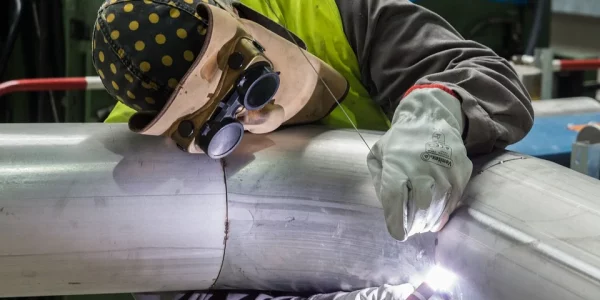There are 11 million job openings in the U.S. today. There are 6 million job seekers.
Actually, it’s worse than that. There are 6 million adults without jobs, but some of them may not want jobs. They’re still trying to recover from Long COVID, they have small children, they’re training for their dream job, they’re working on their novel…Suffice it to say that a lot of those people aren’t actually looking for jobs.
Among the actual job seekers, a fraction have the skills manufacturers need. The American Welding Society estimates that there will be a shortage of welders to the tune of 300,000 jobs next year. Among machinists, only 3.6% are unemployed — which is roughly the percentage of unemployed people who are caring for small children, working on their novels, etc. 3% is actually zero unemployment, because 3% of working-age Americans do not want jobs right now.
Manufacturing trust
Manufacturing is no longer dirty, dull, or dangerous. Many if not most manufacturing plants are clean, high tech spaces where workers program machines. Peoples perceptions need to catch up. Manufacturers need to welcome visitors and reach out to schools to make sure young people have a realistic understanding of the industry.
We also need to make sure young people know that manufacturing jobs pay on average at least double what service jobs pay.
But beyond the misconceptions people have about factories, there is a lack of trust.
In the 20th century, manufacturers sent jobs overseas. Towns were destroyed, families were torn apart, and we ended up with a rust belt.
Companies talked about restoring for decades before the pandemic provided the push needed to make it happen. Overseas wages were rising, intellectual property theft was a daily occurrence, the long supply chain was at odds with consumers’ increasing demand for customization, and ecological and social responsibility were becoming increasingly important. Yet companies avoided making things in America until COVID-19 supply chain disruptions forced their hands.
From the point of view of young workers, manufacturers might be reshoring just until the pandemic really ends, and then they’ll shuck off their new workers and head back to China.
Indramat’s parent companies work hard to forge strong connections with high schools, colleges, even middle schools. Bringing young people back to manufacturing is a must for the future of the industry.
In the meantime, when you need support or service for your Indramat motion control systems, call us at (479) 422-0390 for immediate assistance.



